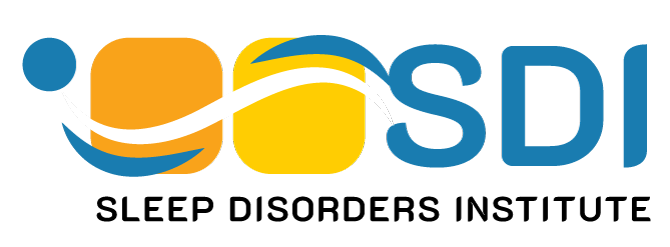Sleep Testing

Nocturnal Polysomnography (Diagnostic):
Overnight sleep testing performed in accordance with current standards of practice.
Nocturnal Polysomnography with Continuous Positive Airway Pressure (CPAP):
Overnight sleep testing performed in accordance with current standards of practice, with CPAP added and adjusted to therapeutic pressures.
Split-Night Polysomnography:
Overnight testing that is split between a diagnostic period, usually at the beginning of the recording, and a CPAP period.
Home Sleep Test (Diagnostic):
The Sleep Disorders Institute (SDI) offers Home Sleep Testing (HST) services for patients who participate in insurance plans that require such testing. This test enables patients to obtain vital sleep diagnostic information in the comfort of their own home using an easy-to-use, portable medical device. In order to qualify, patients must be referred by a physician to rule out or confirm the diagnosis of obstructive sleep apnea based on the following: habitual snoring, witnessed apnea, obesity (BMI >30), an Epworth Sleepiness Scale score >10, and no evidence of a significant medical comorbidity (e.g., CHF, chronic pulmonary disease, or neuromuscular disease) or other sleep disorders (e.g., narcolepsy, central sleep apnea, or periodic limb movement disorder).
PAP NAP:
The PAP NAP is a short CPAP titration procedure that is performed in the laboratory during a brief daytime visit. The patient is given the opportunity to nap while wearing a CPAP so that an expert technician can determine the optimal CPAP pressure. The PAP NAP does not replace overnight polysomnography with CPAP titration, but is a useful tool that enables doctors to optimize CPAP pressure.
Nocturnal Seizure Recording:
Multi-channel EEG recording performed in order to evaluate sleep-related seizures.
Multiple Sleep Latency Test (MSLT):
A test that involves a series of daytime nap opportunities, usually at 9:30 AM, 11:30 AM, 1:30 PM, 3:30 PM, and 5:30 PM, when needed, in order to evaluate daytime sleepiness. The MSLT is desirable for all cases of daytime sleepiness, and is required for the evaluation of narcolepsy.
Maintenance of Wakefulness Test (MWT):
A daytime challenge test in which the patient is given multiple opportunities to nap, but instructed to remain awake during the recording period. The MWT often provides valuable information relevant to the patient’s ability to sustain wakefulness in occupational settings or when performing critical tasks (e.g., driving).
Holter Monitor:
Multi-lead cardiographic (ECG) recording, which can be performed in association with polysomnography when cardiac function during sleep is a concern.
